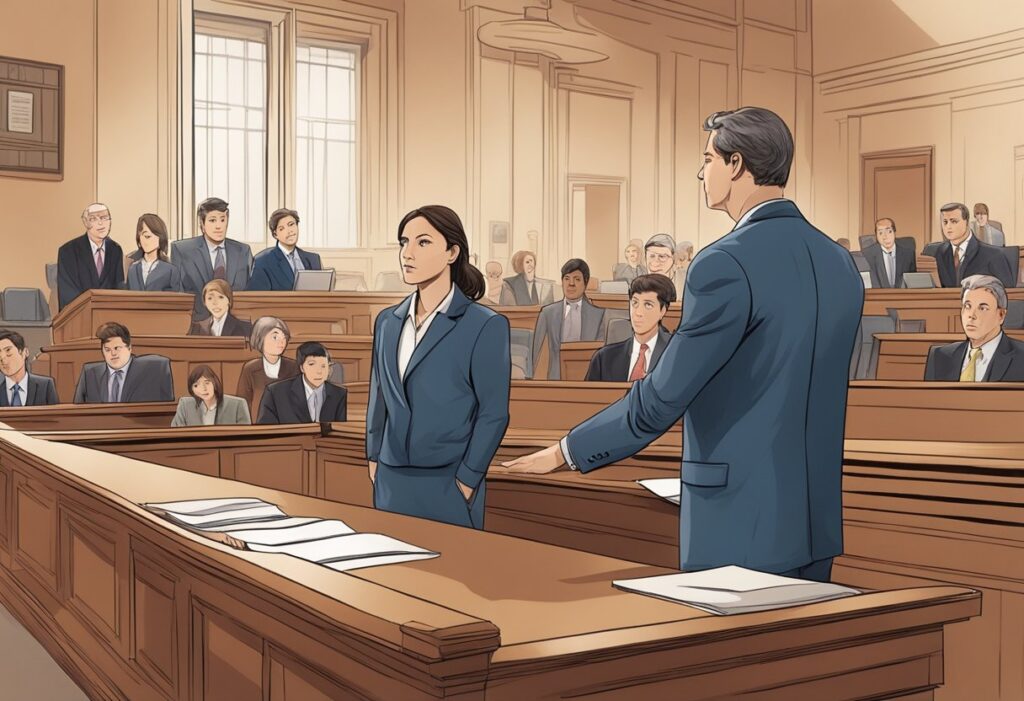Serious injury lawyers play a crucial role for individuals who have suffered significant harm due to accidents or negligence. These legal professionals specialize in personal injury cases, offering expertise in handling complex situations that arise after serious injuries. They help clients understand their rights and seek justice through proper legal channels, ensuring victims receive the compensation they deserve.

Navigating the aftermath of a serious injury can be overwhelming, especially when dealing with medical bills, lost wages, and emotional distress. Serious injury lawyers guide clients through the legal process, advocating for their best interests against insurance companies and other parties involved. Their experience makes a significant difference in the outcome of a case.
Choosing the right serious injury lawyer can be a vital decision that impacts a person’s recovery journey. With their knowledge of personal injury law and commitment to their clients, these lawyers strive to deliver favorable results for those affected by life-changing accidents.
Understanding Personal Injury Law
Personal injury law helps individuals seek compensation for injuries caused by the negligence of others. This section covers key legal concepts, types of serious injuries, and the role of negligence and liability in these cases.
Key Legal Concepts in Injury Cases
In personal injury law, there are important concepts that everyone should know. Negligence is the failure to act with reasonable care, leading to harm. This can happen in various situations, such as car accidents or medical errors.
Liability refers to the legal responsibility for the injury. If a person is found liable, they may have to pay for damages. The victim can file a personal injury lawsuit to seek compensation for medical expenses, lost wages, and pain and suffering.
Insurance companies are often involved in these cases. They may negotiate settlements but can also be unwilling to pay fair amounts. A personal injury lawyer can help individuals navigate these complexities to secure the best outcome possible.
Types of Serious Injuries Covered
Serious injuries vary widely and can significantly impact a person’s life. Common types include:
- Car accidents can cause broken bones, spinal injuries, or traumatic brain injuries.
- Medical malpractice cases might involve birth injuries or surgical mistakes.
- Workplace injuries can result in serious conditions like amputations or severe back injuries.
- Wrongful death claims arise when someone loses their life due to another’s negligence.
Each case requires clear evidence to establish the extent of the injuries and the impact on the victim’s life. This is crucial for determining the proper compensation amount.
The Role of Negligence and Liability
Negligence plays a vital role in personal injury claims. To win a case, the victim must show that the other party acted negligently. This involves proving the following elements:
- Duty of Care: The responsible party had a duty to act safely.
- Breach of Duty: The party failed to meet that duty.
- Causation: The breach directly caused the injury.
- Damages: The victim suffered harm and incurred losses.
Statute of limitations is another important aspect. This law sets a time limit for filing claims. If the deadline passes, victims may lose their right to seek compensation. Understanding these elements is critical for anyone involved in a personal injury case.
Finding and Working with a Lawyer

Choosing the right serious injury lawyer is crucial for effective legal representation. This process involves evaluating lawyers based on their experience and track record, going through the initial consultation, and understanding the payment structure that typically includes contingency fees.
Choosing the Right Serious Injury Lawyer
Finding the right lawyer begins with research. Individuals should look for personal injury attorneys who specialize in serious injury cases. Referrals from friends or family can be valuable, but online reviews also provide insight into a lawyer’s track record of success.
It’s essential to check the lawyer’s experience with cases similar to theirs. This background ensures the attorney understands the nuances of serious injury law. Potential clients may also consider the lawyer’s approach and how well they communicate.
The Initial Consultation Process
The initial consultation is often free and can help clients gauge the lawyer’s skills. During this meeting, they should discuss the details of their injury and any relevant documentation. It’s important to ask questions about the attorney’s experience, strategy, and expected outcomes.
Clients should prepare a list of questions beforehand, such as:
- How many cases like mine have you handled?
- What is your success rate?
- What specific steps will you take for my case?
This conversation helps build trust and understanding between the client and attorney.
Understanding Contingency Fees
Most serious injury lawyers work on a contingency fee basis. This means that clients typically pay no fees unless they win their case. The lawyer receives a percentage of the settlement or award, which is outlined in a contract before the lawyer begins work.
Understanding this fee arrangement is crucial. Clients should know what percentage the lawyer will take and whether there are additional costs, such as court fees. Clear communication about finances helps avoid misunderstandings later in the process.
Frequently Asked Questions
Serious injury lawyers
Individuals often have many questions when it comes to serious injury cases. Understanding the important factors, costs, timelines, and compensation options can help clarify the process and aid in making informed decisions.
What factors determine the qualification of an injury as ‘serious’?
A serious injury is typically defined by the extent of harm and the impact it has on a person’s life. This may include permanent disfigurement, disability, or substantial loss of the ability to perform daily activities. Medical documentation and expert testimony often play crucial roles in determining the seriousness of an injury.
What are the typical fees or cost structure for injury lawyers?
Most injury lawyers work on a contingency fee basis. This means they only get paid if the client receives compensation. Fees usually range from 25% to 40% of the settlement or award, depending on the complexity of the case and the amount of work involved.
How long does a personal injury lawsuit typically take?
The duration of a personal injury lawsuit can vary widely. Many cases settle within months, while others may take years, especially if they go to trial. Factors such as the complexity of the case and the willingness of both parties to negotiate can significantly impact the timeline.
What should one look for when choosing a personal injury lawyer?
When selecting a personal injury lawyer, it is essential to consider their experience, track record, and reputation. Reviews and referrals can provide insight into their skills. A lawyer’s communication style and willingness to answer questions are also important factors to evaluate.
What types of compensation can be pursued in a serious injury case?
Compensation in a serious injury case may include medical expenses, lost wages, and pain and suffering. Future medical costs and loss of earning capacity can also be pursued. In some cases, punitive damages may be awarded if the defendant’s behavior was particularly harmful.
What are the key steps in the process of a personal injury lawsuit?
The process generally starts with a consultation with a lawyer to evaluate the case. Following that, evidence is gathered, and a demand letter may be sent to the insurance company. If a settlement is not reached, the case can proceed to filing a lawsuit, followed by discovery, trial, and possible appeals.
